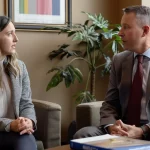Passengers entangled in motor vehicle incidents often find themselves grappling with uncertainty about their rights and entitlements. This article demystifies the journey from post-accident to compensation, outlining essential steps for passengers in car accidents and strategies for navigating personal injury cases. It provides practical insights into filing an insurance claim and the intricacies of negotiation with insurers. Readers will acquire the knowledge needed to secure their rightful compensation and understand the legal options available when the driver is at fault, addressing the critical pain point of feeling powerless in the face of complex legal processes.
Key Takeaways
- Passengers should document all details post-accident for a strong personal injury claim
- Legal counsel is critical in navigating insurance complexities and maximizing settlements
- Timely medical care post-accident ensures health and supports injury claims
- Comparative negligence can reduce compensation; legal guidance helps prevent this
- Emotional distress and suffering are compensable in personal injury claims
Understanding Passenger Rights After a Car Accident Investigation
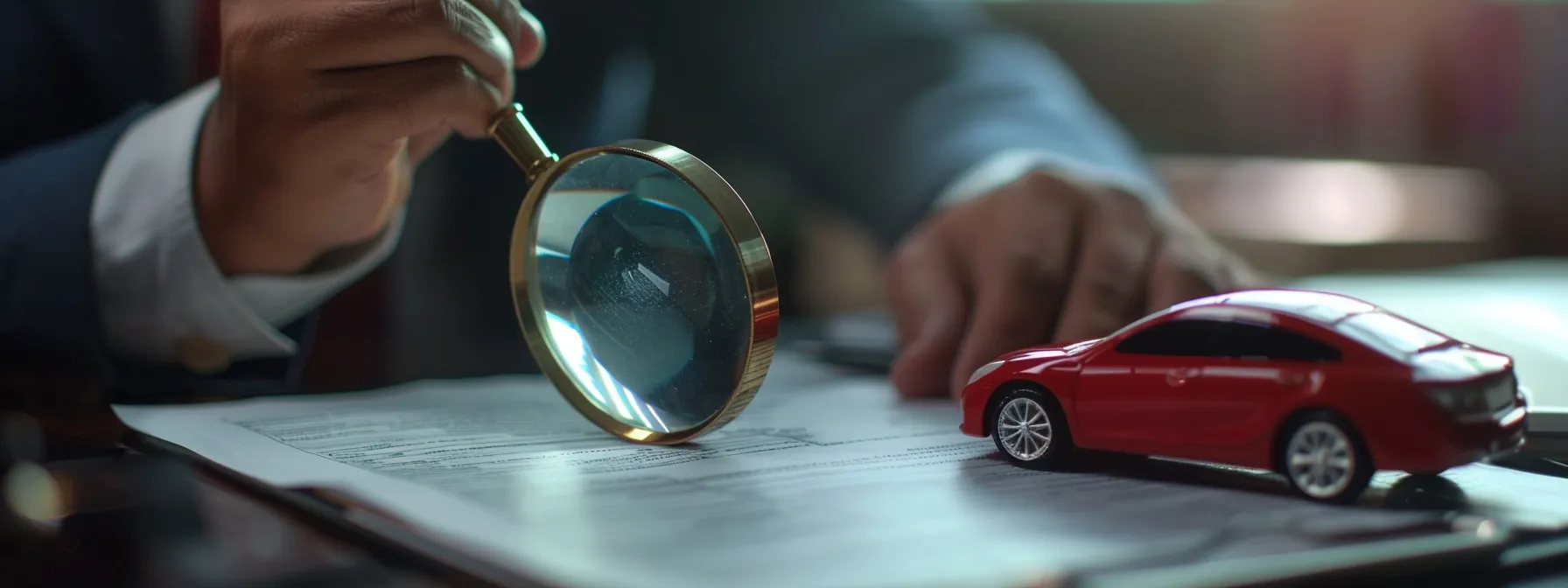
Passengers involved in vehicular collisions must be aware of their legal rights and the intricacies of personal injury law. Understanding who holds liability for passenger injuries is crucial for an effective tort claim evaluation. This precise examination, often facilitated by an adept lawyer from Heil Law Firm, plays a pivotal role in securing rightful compensation. Vehicle insurance policies frequently come into play, highlighting the need for a comprehensive analysis to ensure just outcomes for injured passengers. The ensuing sections will elucidate the legal entitlements for passengers and the process of determining accountability. If you need Personal Injury Services, Contact Heil Law Firm.
Know Your Legal Rights as a Passenger in a Collision
As a passenger involved in a traffic collision, one is entitled to compensation for injuries and damages sustained, irrespective of the driver’s property. This rule holds true whether the mishap occurs in a personal vehicle, a rideshare such as Uber, or as a pedestrian struck by a car. Legal recourse can be sought against the negligent party responsible for the accident; however, establishing fault is a crucial step. A seasoned lawyer can assist in navigating the complexities of personal injury claims and increase the likelihood of a favorable settlement.
It’s paramount for passengers to understand that in the event of an Uber accident, both the driver and the company may bear liability for any resulting accident injuries. The layer of corporate protection offered by rideshare companies necessitates an acute legal strategy to pierce through potential defenses. An experienced attorney familiar with rideshare litigation can offer valuable counsel on pursuing claims against all negligent parties to ensure the passenger‘s rights are zealously protected and compensation is maximized.
Identify Who Is Liable for Passenger Injuries
Pinning down liability is the bedrock of pursuing insurance claims for car accident victims. When a crash occurs, each driver’s insurance policy should be examined, factoring in negligence and adherence to safety regulations, such as seat belt use. The legal responsibility may rest with the driver of the other vehicle, or, in some situations, the driver of the vehicle in which the passenger was traveling if they are found at fault.
In the chaos following an emergency, passengers might overlook crucial details pertinent to their case. Lawyers adept in personal injury law can scrutinize the facts of the accident, witness statements, and police reports to establish the liable party. This analysis supports a strategic approach to maximizing a passenger’s compensation claim:
| Step | Action | Outcome |
|---|---|---|
| 1 | Accident Analysis | Clarity on Accident Dynamics |
| 2 | Legal Evaluation | Identification of At-Fault Party |
| 3 | Claims Process | Compensation Pursuit |
Steps to Take as a Passenger After a Car Accident
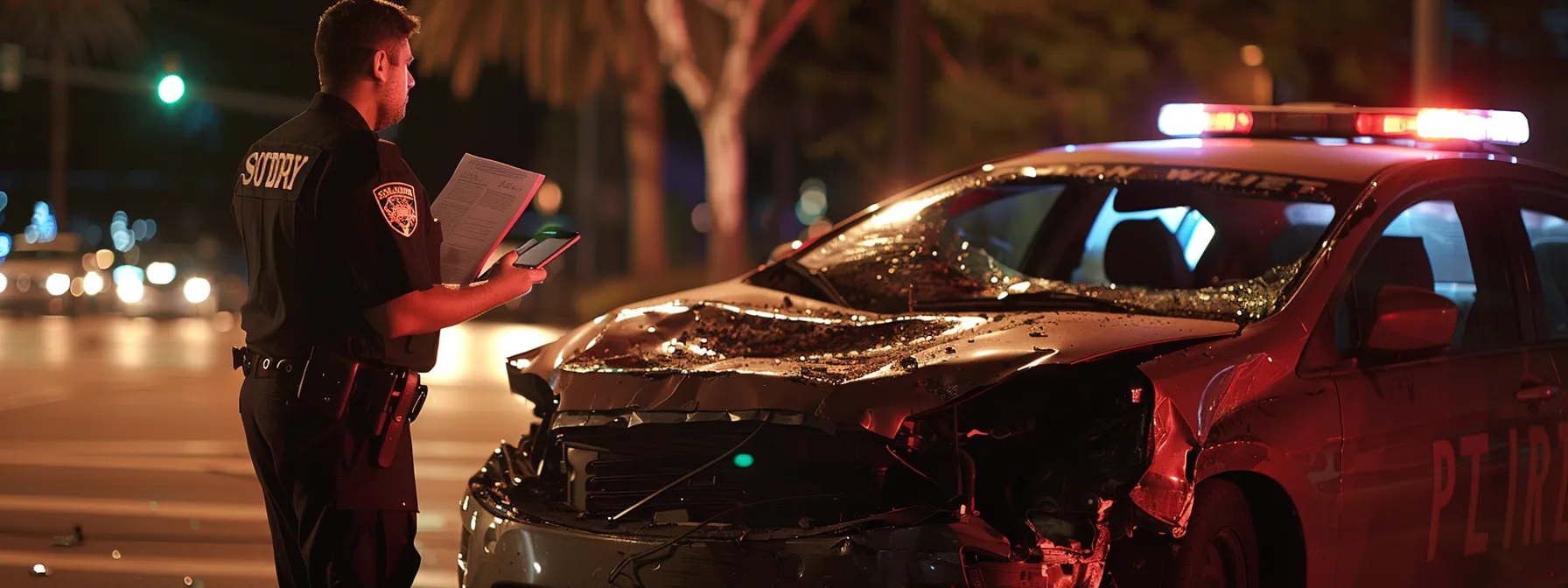
After a vehicular incident, it is imperative for passengers to take immediate steps to protect their legal rights and well-being. Ensuring one’s safety at the scene should be paramount, followed by collecting critical details from all involved parties. Prompt medical care for any injuries, even those not immediately apparent, is key to addressing potential pain and suffering. Additionally, it is essential to report the accident to law enforcement and secure a police report. Meticulous documentation of facts is crucial to support any loss of consortium or other claims in the future. Individuals in Los Angeles seeking to understand these steps further can take advantage of a free case evaluation. For motorcycle accident victims, these measures are equally important.
Ensure Your Immediate Safety at the Accident Scene
At the immediate moment following a collision, prioritizing safety is a passenger‘s fundamental duty of care. Individuals injured in a car accident should promptly assess themselves for injuries such as spinal cord damage, which could drastically impact quality of life if not addressed swiftly. It is crucial to remain still if any severe pain or discomfort is detected, and wait for emergency services to perform a professional evaluation to prevent aggravating any injuries.
In instances where one has the mobility and presence of mind, securing the accident scene to prevent further incidents is important. This includes setting up hazard signals or cones if available. If an injury such as a dog bite from a pet inside the vehicle occurs, document the injury and inform medical personnel upon their arrival. Bearing in mind these proactive measures assists in safeguarding both one’s physical well-being and legal standing in the aftermath of an accident.
Gather Essential Information From All Parties Involved
Post-collision, it is essential for a car accident passenger to collect pertinent information promptly, a step which is foundational in personal injury litigation. Parties involved should exchange contact details, insurance information, including the deductible specifics, and vehicle registrations. This exchange serves as a base for any future claims process, including those that could potentially involve complex disputes such as medical malpractice within the realm of car accident cases.
Moreover, awareness of the statute of limitations in one’s jurisdiction is critical for passengers to avoid forfeiting their rights to claim damages. Timeliness in documenting the facts of the incident and consulting a legal expert may influence the course and outcome of one’s compensation pursuit. Therefore, a thorough collection of all relevant details immediately following the accident is indispensable:
- Gather contact details from all individuals involved.
- Obtain insurance information from the drivers, noting policy limits and deductibles.
- Document the scene with photos, including vehicle positions and visible injuries.
Paying close attention to detail during this phase can significantly affect one’s ability to recover losses. Car accident passengers should be proactive in amassing information, as this will form the crux of their legal claim, potentially shaping the quest for fair restitution for any harms sustained.
Seek Prompt Medical Attention for Potential Injuries
After an accident, a passenger‘s immediate action should be seeking medical attention, even if injuries seem minor. This step is critical not only for health concerns but also because medical records serve as essential evidence should the passenger become the plaintiff in a personal injury case. The records serve to establish a causal link between the accident scene and the injuries, which is a key factor when determining which party is liable, especially in incidents where the at-fault driver might be driving under the influence.
Timely medical intervention can significantly shape the outcome of a personal injury case. Should the company or individual responsible for the accident question the severity of injuries, contemporaneous medical documentation serves as an unassailable testament to the passenger‘s condition post-accident. Such documentation is often vital when negotiating with insurance companies, as it upholds the integrity of the claim by providing a factual basis for the damages sought.
Report the Accident to the Police and Obtain a Report
Reporting the incident to law enforcement is a decisive step in any car accident situation. When police are notified, they conduct an official investigation that can provide crucial information for an injury claim in San Diego or elsewhere. The presence of an officer also facilitates the accurate collection of data, which is essential when facing a claims adjuster handling the case. The police report, containing objective facts regarding the accident, often becomes a cornerstone document in the ensuing legal process.
Securing a police report can be instrumental for passengers, especially when injuries like whiplash, which may not manifest immediately, later become significant in the claim. This comprehensive document captures vital details that might otherwise be overseen. As victims in San Diego pursue justice, the information from a police report provides a benchmark for establishing the context and impact of their injuries, reinforcing the credibility of their injury claim to insurers and courts alike.
Document Evidence to Support Your Future Claims
Compiling evidence immediately after an incident is vital for bolstering an accident claim. For example, photographs of the scene or defective products can assert product liability, demonstrating the duty to provide safe items. Similarly, photos from the location of the accident may support premises liability claims. Evidence that is meticulously collected and preserved can be pivotal when recovering damages for a catastrophic injury or advocating for a passenger‘s legal recovery.
Passengers should retain all documentation relating to the accident as proof of incurred damages, which will be indispensable when presenting their case to an insurer or court. Medical reports, eyewitness testimonials, and expert opinions can substantiate the severity of injuries and underscore the necessity for equitable compensation. This attention to detail ensures that the passenger upholds their duty to present an articulate and factual accident claim, enhancing their credibility and the potential for a successful resolution.
Filing a Personal Injury Claim as an Injured Passenger
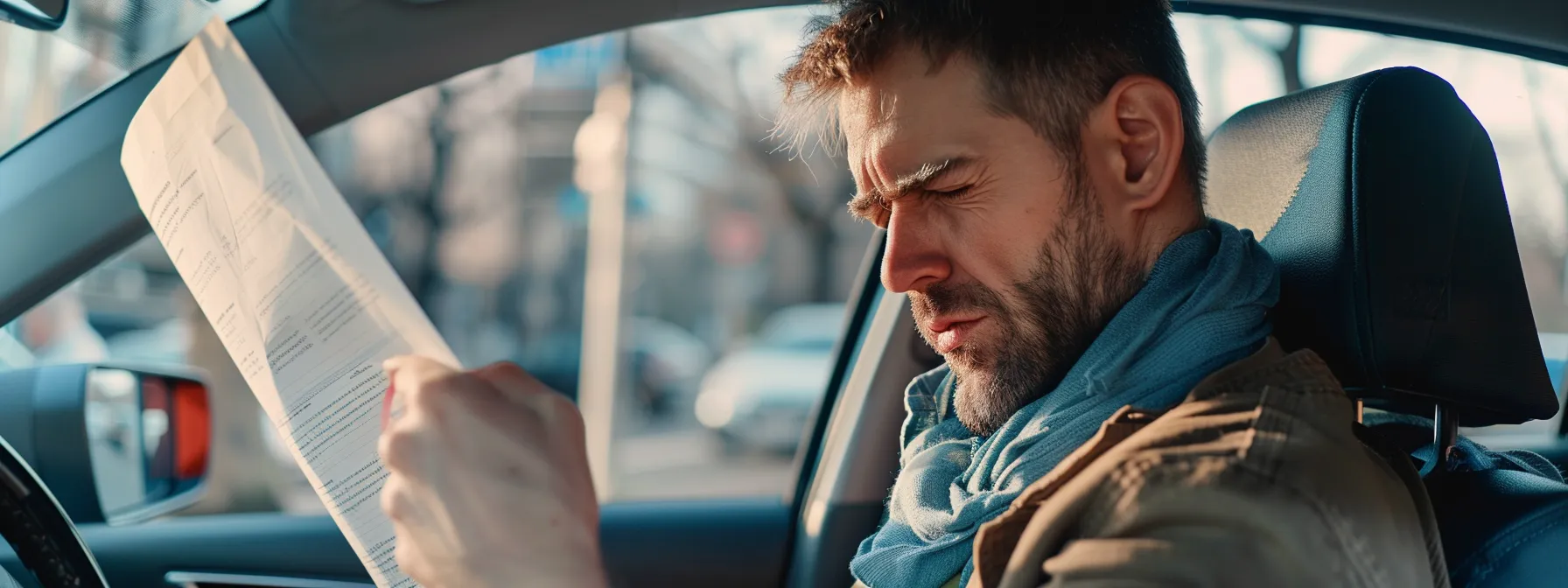
An injured passenger must take decisive steps when filing a personal injury claim to secure car accident compensation. It is imperative to determine which insurance policies apply in cases such as drunk driving incidents, understand how to compile medical records, particularly for neck injuries, and ensure all expenses are accounted for. Consulting a legal expert is essential in navigating the intricacies of wrongful death claims and other legal challenges. Filing claims within the statute of limitations and negotiating with insurance carriers are vital steps toward obtaining a fair settlement. The subsequent discussion will illustrate how to methodically address each phase of the claim process.
Determine Which Insurance Policies Cover Your Injuries
When injured as a passenger in a vehicle accident, identifying which insurance policies are applicable is a crucial first step. One must discern whether the driver’s liability insurance covers passenger injuries or if the passenger‘s own personal insurance is needed, especially if physical therapy or other long-term care is required. It is advisable to seek legal advice to navigate the complexities of insurance policies and ensure that the fault is correctly assigned and the covered benefits are fully utilized.
Understanding the nuances of the respective liability insurance policies involved can be pivotal in successfully negotiating a claim. An experienced attorney will help elucidate how these policies interact, particularly when multiple parties are at fault in a vehicle accident. By securing sound legal advice, passengers can ensure that their rights are protected, and they are compensated for their injuries without getting entangled in the disputes that may arise between different insurers.
Compile Medical Records and Expenses for Your Claim
Compiling medical records post-accident is a critical step for passengers seeking compensation for injuries sustained. These records should include detailed nursing care notes, diagnostic tests showing any bone fractures or injuries, and all treatments received. Accurate and up-to-date insurance information, reflecting coverage from health insurance policies, is equally essential. This comprehensive assemblage of records and expenses will substantiate the severity of injuries and solidify the claim’s foundation.
Adherence to the speed limit or other road laws at the time of the incident can significantly impact a passenger‘s injury claim. When passengers compile evidence and documentation, including medical expenses, they should ensure that these details align with the context of the accident. Legal experts stress the importance of maintaining organized records that provide a clear narrative of the healthcare journey, including X-rays, MRIs, or prescriptions, which can be crucial in proving claims to insurance adjustors.
Consult an Attorney to Navigate the Legal Process
Seeking the guidance of an attorney with extensive experience in personal injury law is fundamental when filing a complaint for car accident injuries. Legal experts are well-versed in unearthing negligence, advocating for fair settlements, and navigating the intricate procedural landscape. They ensure that the client’s rights as an injured passenger are thoroughly protected, which is invaluable when multiple parties and insurance policies are involved.
Passengers who have experienced injuries in a car or bicycle accident should consult an attorney promptly to discuss their case. Lawyers adept in these matters provide crucial advice on evidence preservation and legal strategies, thus enhancing the potential for a successful claim. Their expertise transforms complex legal information into actionable insights, empowering the client to understand and assert their rightful claims:
| Legal Step | Client Action | Attorney’s Role |
|---|---|---|
| Initial Consultation | Discuss car accident case | Evaluate claim, advise on rights |
| Evidence Review | Provide evidence of injuries | Analyze evidence, build legal argument |
| Claim Filing | Decide to proceed with claim | Prepare legal documents, represent in negotiations |
Submit Your Claim Within the Statute of Limitations
Understanding the legal boundaries of time allocated for submitting a personal injury claim is crucial for individuals who have been injured as passengers. For those wondering, “I was a passenger in an Uber accident, what are my next steps?” one must act promptly. An injured party must file a claim with the auto insurance company within the designated statute of limitations, which varies by state. A delay could result in the forfeiture of one’s right to seek compensation, emphasizing the importance of swift action post-incident.
The responsibility to file a claim within this legal timeframe underscores the significance of gathering evidence and witness accounts expeditiously. When injured passengers seek to recover damages, consulting with a legal professional who can guide them through the process and interface with the relevant auto insurance company is imperative. By doing so, they ensure that their claim is filed accurately and on time, preserving their entitlement to obtain fair reparation for the losses endured.
Negotiate a Fair Settlement or Prepare for Litigation
In the quest to claim compensation for an injury, such as a bone fracture suffered as a passenger in a vehicular collision, negotiating a fair settlement is often the preferred course of action. This strategy not only reduces legal fees but also expedites the receipt of funds crucial for the injured party’s recovery. Legal representation, well-versed in California accident law, can be pivotal in maximizing settlement offers through negotiations, ensuring clients are justly compensated for their injuries sustained behind the wheel.
Should negotiations reach an impasse, one must be prepared to shift gears and advance toward litigation. This decision marks a transition from settlement talks to the courtroom, where evidence is meticulously presented to support the claim. It is vital that passengers understand the consequences, including potential court fees, and lean on their lawyer‘s expertise to navigate these complex proceedings with the aim of securing the compensation they deserve:
| Resolution Path | Action | Focus |
|---|---|---|
| Settlement | Negotiate with insurance adjusters | Maximize compensation, minimize fees |
| litigation | Proceed to court | Persistently pursue rightful claim |
Navigating Insurance Claims and Settlements
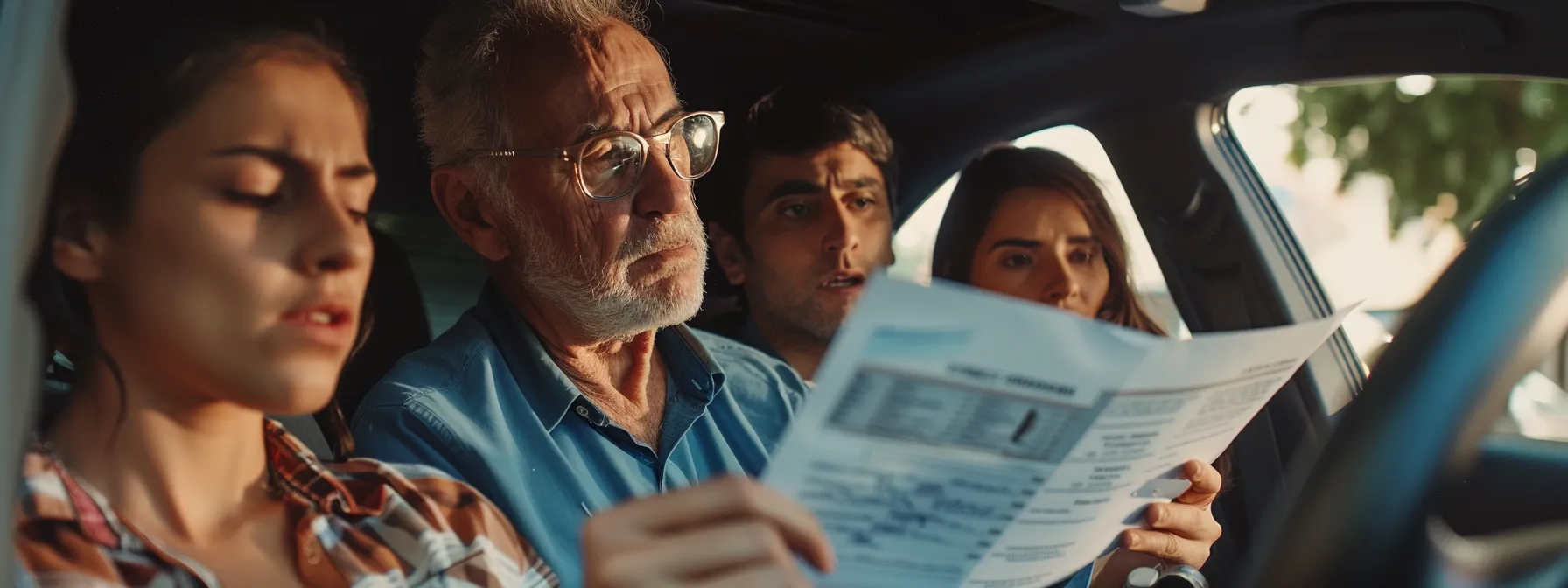
In the aftermath of a vehicle collision, passengers face the complex task of navigating insurance claims to secure the compensation they deserve. Understanding how coverage under different policies applies, particularly if one is a passenger in a car accident, is vital. This section guides passengers on effective communication with insurance adjusters, addresses common pitfalls in dealing with insurers, and offers strategies for countering undervaluing settlement offers that might not cover all damages and necessary therapy.
Understand Passenger Coverage Under Different Policies
When injured as a passenger in a car accident, it’s crucial to understand the nuances of various insurance policies. The primary driver’s insurance may offer coverage, but the passenger might also be entitled to compensation under their own personal injury protection or through the at-fault driver’s liability insurance. This intricate web of potential coverage requires careful examination to ensure all injuries and trauma are adequately addressed.
Collecting and preserving evidence is a key step in substantiating one’s claim as an injured passenger:
- Document injuries thoroughly, including any related to slip and fall incidents.
- Maintain records of all medical treatments and related expenses.
- Ensure injury reports and photographic evidence are readily available for insurance adjusters.
This approach not only bolsters the claim but also aids in clarifying compensatory entitlements under different policies.
Communicate Effectively With Insurance Adjusters
Communicating effectively with insurance adjusters is crucial in advancing a car accident case towards a favorable resolution. Passengers must provide the insurance company with clear, consistent information that supports their account of the incident. Establishing the burden of proof is vital, and presenting evidence such as statements from a police officer or documents reflecting policy coverage can uphold the credibility of their claim.
Direct and timely dialogue with insurance adjusters can significantly impact the outcome of a car accident case. It is wise for passengers to understand their rights and the nuances of the claims process, thereby ensuring that their communications are productive. By methodically presenting the facts and their implications on the policy, passengers reinforce their position, paving the way for an equitable settlement.
Avoid Common Pitfalls in Dealing With Insurers
When dealing with insurers after a Texas car accident, passengers often stumble by not thoroughly documenting their road behavior prior to the incident. A common misstep is failing to gather and present clear evidence which substantiates claims, especially in confusing scenarios like hit and run accidents. Consequently, a lack of evidence can lead insurers in the United States to undervalue or deny just compensation.
Another frequent pitfall involves passengers inadvertently admitting fault or providing inconsistent statements which can severely compromise their claim. The industry’s professionals advise individuals to be cautious in their communications, avoiding any speculation about the accident that could be misconstrued by insurers. Maintaining a clear, concise narrative based on facts enhances the prospect of achieving a fair resolution:
| Mistake | Consequence | Prevention |
|---|---|---|
| Poor Evidence Collection | Undermined Claim Strength | Diligent Documentation |
| Incautious Communication | Potential Fault Admission | Measured, Factual Dialogue |
Protect Your Rights Against Low Settlement Offers
When engaging in negotiations for a car accident settlement, it’s essential for passengers to exercise their right to decline offers that do not fully compensate for their personal injuries. Be it an incident involving a private vehicle or a commercial truck, or even a rideshare service like Lyft, passengers must evaluate the sufficiency of the settlement offered. Legal consent should not be given to any settlement agreement hastily; instead, a comprehensive understanding of one’s injuries and associated costs is necessary to ensure equitable compensation.
Securing a fair settlement often requires the guidance of an adept attorney specializing in personal injury cases, who can elevate the prospects of achieving a more favorable outcome. Effective legal representation allows passengers to articulate their needs clearly, pursue maximum reparation, and resist lowball settlement offers that undermine their recovery journey:
- Assess the adequacy of the settlement offer in light of the injuries sustained and expenses incurred.
- Consult with a personal injury attorney who can leverage experience to negotiate better compensation.
- Thoroughly review all settlement terms with legal guidance before providing consent.
Legal Options When the Driver Is at Fault

When the driver is found to be at fault in a car crash, passengers have the right to assess the driver’s negligence and responsibility, including the impact on wage loss and other damages. They may consider legal action for compensation, navigating delicate situations such as those involving friends or family. A proficient advocate is essential to guide injured passengers through the complexities of Personal Injury Protection (PIP) insurance claims and to advise on steering legal proceedings for their benefit.
Assess the Driver’s Negligence and Responsibility
In the wake of auto accidents, it is imperative for passengers to critically assess the driver’s negligence and responsibility. This assessment forms the bedrock of a car accident claim, where the driver’s actions are scrutinized against traffic laws and safety protocols. Credible testimony, often corroborated by an accident attorney, enables passengers to construct a persuasive argument supporting their compensation pursuit.
An accident attorney plays a crucial role in deconstructing the moments leading to a car crash, evaluating the driver’s conduct in an effort to establish fault. This meticulous scrutiny is essential, for it directly influences the outcome of an auto accident claim. Injured parties rely on their attorney’s expertise to navigate the complexities of legal proceedings and to reinforce their case with evidence substantiate:
| Step | Action | Impact |
|---|---|---|
| 1 | Document Driver’s Behavior | Essential Evidence Collection |
| 2 | Analyze Accident Circumstances | Building a Foundation for Claim |
| 3 | Consult with Attorney | Expert Guidance and Representation |
Consider Legal Action Against the at-Fault Driver
When passengers experience harm in a car crash due to the driver’s negligence, they must consider their legal options carefully. Initiating car accident claims through an adroit personal injury attorney can harness the complex interplay of insurance and criminal law knowledge. This legal recourse not only holds the responsible driver accountable but also seeks to recompense the passenger for the adversity borne from the collision.
In the realm of automobile incidents, insurance coverage and liability questions surge to the forefront. The passenger affected by an at-fault driver’s actions possesses the prerogative to pursue compensation. Empowered with expert legal counsel, individuals can navigate car accident claims effectively, ensuring that their rights are safeguarded, and their insurance concerns are aptly addressed.
Handle Situations Involving Friends or Family Members
When the driver responsible for an accident is a friend or family member, the situation necessitates delicate handling due to the interpersonal dynamics at play. In such instances, passengers must remember their entitlement to Personal Injury Protection benefits, which can mitigate the discomfort of seeking compensation from a loved one’s insurance. Navigating these claims with sensitivity, and where necessary, through court mechanisms, ensures passengers do not forgo the monetary recompense critical for covering medical expenses incurred from the accident.
It is essential for passengers to appreciate that pursuing a claim in accidents involving friends or relatives is not tantamount to accusing them of a crime; rather, it is exercising a legal right to ensure financial stability post-accident. An experienced attorney can provide valuable guidance in this context, ensuring that the rightful compensation is sought through the driver’s insurance without jeopardizing personal relationships or the driver’s license status. This professional assistance ensures that the process remains respectful and fair for all parties involved.
Maximizing Compensation for Passenger Injuries

Passengers embroiled in road traffic accidents must meticulously calculate total losses to maximize compensation. This includes all medical expenses and lost wages, as well as addressing non-economic damages such as pain, suffering, and emotional distress. Professional legal guidance helps avoid pitfalls in a lawsuit that could otherwise reduce deserved compensation for injuries, which may range from minor to severe conditions like paralysis. The following sections will provide key strategies for accident victims to ensure every expense and impact is accounted for in their claim.
Calculate Total Losses Including Medical Bills and Wages
In the wake of an automotive mishap, passengers should meticulously tally all economic damages including medical expenses, such as surgeries for brain injuries or treatments for disfigurement, and any lost wages incurred due to absence from work. The physical and financial disruption caused by an accident with an Uber driver can spiral without careful accounting, and involving the police and securing an official report becomes indispensable in supporting claims to auto insurance companies.
Furthermore, it is essential for passengers to ensure that their auto insurance claims reflect the full extent of their losses, giving precedence to long-term effects of their injuries on earning capacity and quality of life. The impact of a traumatic brain injury or severe disfigurement, for example, extends beyond initial medical costs to include potential ongoing therapy and loss of future income, essentials in negotiating a comprehensive settlement.
Include Pain, Suffering, and Emotional Distress Damages
Securing justice for passengers injured in car accidents extends beyond the physical realm, acknowledging the non-tangible effects such as mental agony and emotional turmoil. The National Highway Traffic Safety Administration underscores the aftermath of trauma that individuals may endure after crashes at busy intersections or on highways. When calculating damages, legal experts emphasize the importance of including compensation for pain, suffering, and emotional distress to truly reflect the extent of the passenger‘s ordeal and to pave the path for holistic recovery.
In the quest for safety and fairness, it is vital that settlements factor in the profound and often lasting impact of a car accident on a person’s mental health. An experienced attorney can guide one through the meticulous process of quantifying these non-economic damages, ensuring they are accorded adequate weight in the pursuit of rightful compensation. This approach asserts the value of emotional well-being in the legal domain, fortifying passengers’ rights as they navigate the consequences of roadway incidences.
Avoid Mistakes That Could Reduce Your Compensation
Passengers involved in vehicle accidents must exercise caution to avoid the pitfall of comparative negligence which can drastically reduce their rightful compensation. Legal professionals at a dedicated law firm can provide crucial insight, helping prevent statements or actions that may imply shared responsibility for the traffic incident. Such guidance ensures that claims for suffering and other damages are not compromised by an inadvertent admission of partial fault.
Engaging with seasoned legal counsel from a reputable law firm immediately following an accident is paramount in upholding one’s right to compensation without reduction. Expert attorneys adept in navigating traffic law will adeptly manage negotiations, protecting clients from common negotiation tactics that might undervalue the extent of their suffering and injuries. This proactive legal partnership is essential for safeguarding the full spectrum of a passenger‘s entitlements in the wake of an accident.
Conclusion
Passengers involved in car accidents possess clear rights and entitlements that are crucial to their pursuit of fair compensation. The meticulous collection of evidence and an understanding of insurance policy intricacies are foundational steps in this process. Legal representation specializes in personal injury and insurance law proves vital in navigating the complexities surrounding any claims or litigation that may arise. It is essential for passengers to proactively defend their legal standings and secure the compensation they deserve following a car accident, ensuring their health, well-being, and financial stability are protected.




